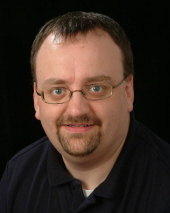Rob Lyons is deputy editor of spiked. His main writing interests are in science, health and environmental issues, including a column - ‘Don’t Panic!’ - that questioned many popular scare stories.
Science is simply the human attempt to understand the world, the better to use it for our benefit. In order to pursue science effectively, we have to do two, apparently contradictory things which illuminate what science is.
Firstly, we need to learn and understand the gains of science to date. Science is a social and historical activity. To see further, to paraphrase Newton, we must stand on the shoulders of giants. This is true of almost every field of human endeavour from music to cookery - the great innovators have usually started by engaging fully with what has been developed before. There’s no inspiration without the perspiration.
Secondly, we need to be sceptical and questioning of everything that has been said before. When scientific conclusions are accepted as unquestionable facts handed down to us from on high, we can never make progress. My favourite example of this is the discovery of the bacterium H.pylori by the Australians Robin Warren and Barry Marshall. If they had accepted the received wisdom that bacteria cannot survive in the acidic conditions of the stomach, they may not have discovered that this bacterium causes the majority of peptic and duodenal ulcers.
Science is an object lesson in the necessary skills to grapple with a great variety of the problems facing society today.
And yet, we should also ask ‘why not science?’ The conclusions of scientific research are essential to inform policy, but science cannot decide policy. To understand that the world is getting warmer does not determine what we should do about it. To know that smoking can be bad for you doesn’t demand that smoking should be banned. These are complex political, social and moral questions. If we tackle them in the spirit of informed scepticism that science demonstrates so well, we are more likely to come to better conclusions. That is one reason why an understanding of scientific method, and the gains it can bring, would benefit everyone.
 Published by
Published by
One Comment
These are complex political, social and moral questions. If we tackle them in the spirit of informed scepticism that science demonstrates so well, we are more likely to come to better conclusions. That is one reason why an understanding of scientific method, and the gains it can bring, would benefit everyone.